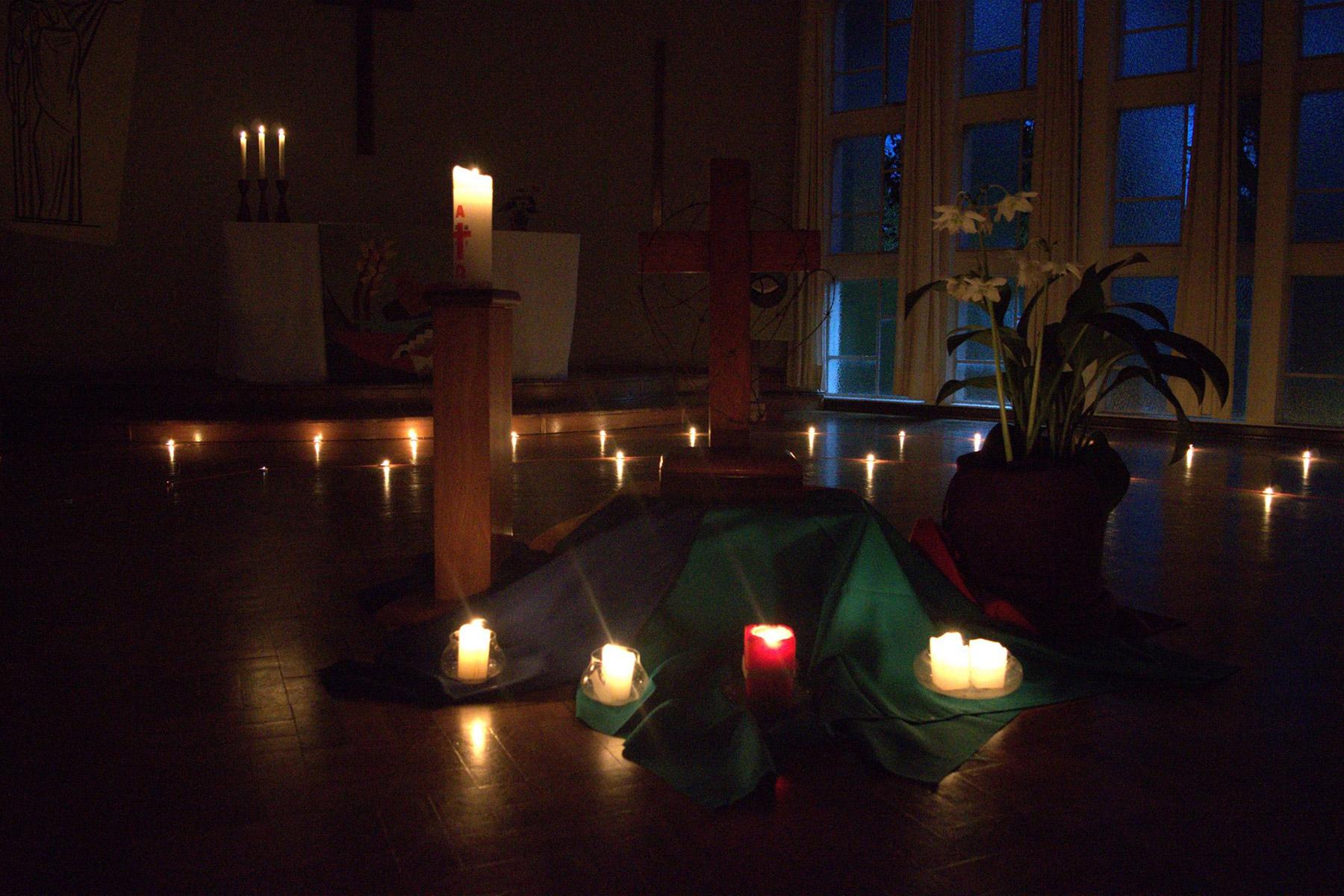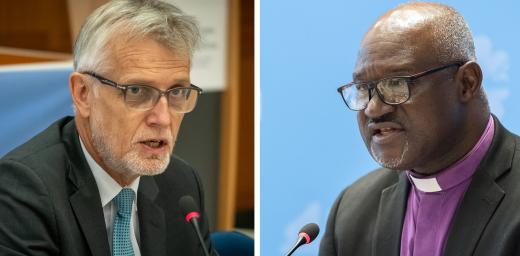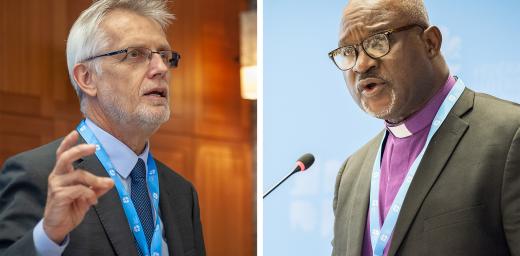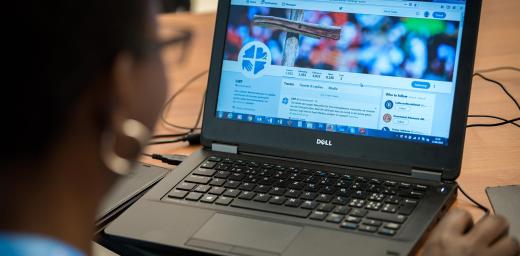COVID-19: LAC churches enhance learning to be “a more caring church”

Photo: Sustainability Institute LAC /Scheila Dillenburg
Lessons learned from “practical” education during a pandemic
(LWI) – Following a series of bi-monthly online meetings, leaders in decision-making positions in The Lutheran World Federation (LWF) member churches in Latin America and the Caribbean (LAC) are establishing protocols to make the churches more caring and open to alternative ways of staying connected to congregation members.
In a region with over 10 million COVID-19 cases and more than 400,000 deaths by the end of November, the 19 LWF LAC churches have each been adversely affected by the coronavirus disease pandemic. During their November online meeting, 15 church leaders shared ongoing challenges and lessons learned under the theme: “Sensitize (educate in a practical way) churches on regulations related to the pandemic and issues against violence."
Reporting on the situation in the Evangelical Church of the Lutheran Confession in Brazil (IECLB), Rev. Dr Mauro B. de Souza, the church’s second vice-president, presented four approaches that include pastoral accompaniment and response to increased gender-based violence. The IECLB’s goal is to focus on a church that “listens, cares for life” and “creates and maintains ties,” he said. This includes ongoing courses for ordained and non-ordained pastors on how to accompany people who are mourning when restrictions prevent accompaniment of the sick in hospitals. “There is great suffering, suppressed mourning and no possibilities for farewell,” de Souza noted.
Responding to rising cases of gender-based violence, the IECLB has been working on approaches to “denounce, orient and educate” its members about domestic violence, he explained. Its weekly radio campaign “For a Home without Violence” targets the general public and training courses are offered for pastors and other church leaders.
“Many gifts” in the church
Like most churches, the IECLB’s finances depend on offerings from worship services and other activities that require physical presence. When in-person services were suspended or reduced as part of the coronavirus safety and prevention measures, this resulted in financial difficulties. The church has gradually developed sustainable alternatives such as reviewing and adjusting budgets, new ways of saving funds and using its resources. “We are not a fragile church: God gives us many gifts,” de Souza noted.
We are not a fragile church: God gives us many gifts.
The online and telephone contacts to congregation members seeking pastoral accompaniment have increased people’s involvement in the church, de Souza said. In a post-pandemic situation, the IECLB will focus on maintaining ties with its members and supporters both in person and through virtual participation.
Rev. Danielle Dokman, Evangelical Lutheran Church in Suriname, said the church has also witnessed an increase in members’ participation due to online worship, daily devotions and pastoral care. “There were many people who could not attend church before for different reasons, and today they are joining online. Bible studies help people to cope with emotions and stress, and accompaniment for issues related to domestic violence.”
Affirm dignity of life
From the early days of a few COVID-19 cases to presently when infections are rising especially in the capital Bogota and the eastern city of Tunja, the Evangelical Lutheran Church of Colombia (IELCO) has continued to promote the message of “care for life” and accompany those experiencing economic difficulties, said Vice-Bishop John Rojas. Like other churches that have not resumed regular in-person worship, IELCO mostly uses social media to broadcast services on various days during the week, in order to offer “spiritual strengthen people and encourage people in their daily lives.”
The four church-run schools continue to teach students online and serve as a community through which financial or food support is offered “to affirm dignity of life” for families in need especially those that depend on informal work, Rojas explained.
However, the social impact of the pandemic has led to increased violence in homes across the country. In response, IELCO has increased its psychological and pastoral care services, and created a legal office to monitor and accompany people facing injustice and intra-family violence. Through webinars, the church continues to educate its members and other interested partners on reporting and preventing violence.
Rojas emphasized the church’s commitment to accountability in its COVID-19 response. “Continuous training and learning will continue and the virtual method will surely be a channel that will remain when churches reopen,” he added.
Like other churches in the region, The Lutheran Church of Faith and Hope in Nicaragua (ILFE) adapted and promoted the government’s guidelines for physical distancing, wearing facemasks, regular handwashing and other hygienic measures to stop the virus spread. “While churches have now reopened, with restrictions in place, we still live at great risk of the pandemic and we continue to appeal to individual responsibility,” noted Rev. Katia Cortez.
Gaps between rural and urban communities
The LAC church leaders also expressed concern for congregation members who lack internet connection and/or opportunity to use social media. Churches need to address the gaps between members who have neither access to internet nor mobile phones and rural and urban communities, for example.
The online meetings addressed other concerns among the LWF member churches. ILFE Bishop Dr Victoria Cortez Rodríguez requested prayers, solidarity and support for communities in Nicaragua and other countries affected by hurricane ETA. “The hurricane and COVID-19 require a humanitarian response in rural areas,” said Rev. José Pilar Álvarez Cabrera, president of the Guatemala Lutheran Church. The risk is particularly acute for rural peasant and indigenous families without access to modern technology and little or no health safety measures, he added.
Rev. Dr Patricia Cuyatti, LWF Regional Secretary for Latin America, the Caribbean and North America, said the meetings have become important spaces for mutual learning and fellowship, especially with the worrying increase of COVID-19 infections in the region. “Churches learning to be church in extraordinary circumstances are at the same time deeply concerned about issues affecting their communities such as poverty and hunger,” she noted.
It is encouraging, Cuyatti added, to see how social media is helping churches to stay in close communication with their members and communities. “For instance, it is moving and also motivating to see the outstanding pastoral accompaniment being offered through online funerals or one-to-one accompaniment to women victims of gender-based violence.”
LWF/P. Mumia
The LWF has 19 member churches in 18 countries in the Latin America and Caribbean region. The bi-monthly online meetings during the exceptional times of COVID-19 are one way of keeping churches connected.





